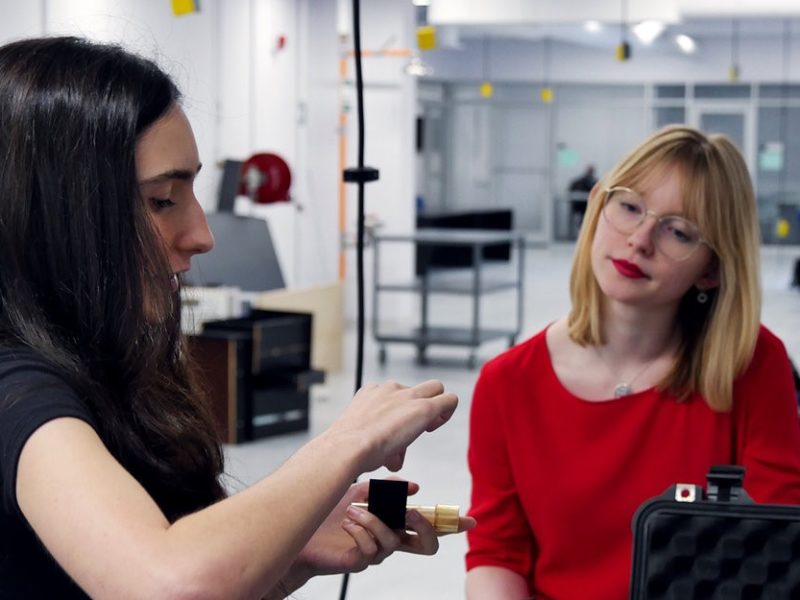 Executive Summary
Executive Summary
Indigenous youth in Canada face significant barriers to pursuing STEM education and careers, including low high school completion rates, a lack of culturally relevant support systems, inadequate integration of Indigenous Knowledge into curricula, and the intergenerational trauma of colonialism.
This project implemented land-based camps that sought to marry Indigenous knowledge and STEM education. By providing Indigenous youth with access to STEM education that aligns with their cultural values and perspectives, the project aimed to empower them to pursue STEM aspirations and contribute meaningfully to their communities and the world.
Alongside increased sense of belonging, participants from the Northwest Territories and Alberta increased their understanding of Indigenous land-based knowledge, reinforcing the connection between traditional wisdom and contemporary STEM disciplines. Participants earned valuable high school credits for their participation in the land-camps, fostering academic progress and increasing the likelihood of high school graduation.
While the long-term impact on high school graduation rates and STEM career pursuits remains to be fully evaluated, the project’s positive outcomes and encouraging feedback suggest its potential to make a lasting impact on Indigenous youth’s engagement with STEM. Continued support and repeated participation in similar programs may further enhance these outcomes and pave the way for a more diverse and inclusive STEM landscape in Canada.
Key Insights
Almost all of the participants in the land-based camps earned credits towards their high school graduation.
Youth and instructors who participated in the land-based camps exhibited greater interest and reported higher levels of learning when content and activities were delivered or presented by Indigenous staff and guests.
Nurturing a sense of belonging among Indigenous youth supports knowledge and skill building as it helps to acknowledge and address the active and persistent effects of colonialism and residential schools in damaging community and confidence.
 The Issue
The Issue
While Indigenous youth are a rapidly growing population in Canada, their participation and achievement rates in digital skills and science, technology, engineering and mathematics (STEM) education and careers are below the national average.
Barriers to Indigenous success in STEM include low high school completion rates, especially for on-reserve First Nations peoples, lack of support and mentorship, inadequate integration of Indigenous knowledge in curricula, and the intergenerational trauma of colonialism and the residential school system.

 What We Investigated
What We Investigated
Building on decades of experience delivering Indigenous-led STEM programming for youth, this project aimed to inspire and empower Indigenous youth to pursue STEM education and careers, and to contribute to their communities and the world.
The project provided Indigenous youth from the Northwest Territories and Alberta with culturally relevant, land-based, and credit-earning experiences that connected Indigenous knowledge and STEM concepts. The project was delivered collaboratively between Indigenous organizations, school boards, education providers, and industry partners.
The project had three main components: on-the-land camps, during-school components, and training for educators — all of which focused on the connections between Indigenous knowledge and STEM.
The on-the-land camps were immersive experiences that took place in natural settings and engaged youth in hands-on activities, such as building shelters, making fire, identifying plants and understanding their medicinal properties, sustainable animal harvesting, and water management. The camps prioritized community-led programming that was reflective of the students’ backgrounds and contexts, tailoring the content and delivery methods to suit local needs.
The during-school components were delivered in STEM-related high school classes that had a land-based component, such as environmental science, biology, or geography. The during-school components supplemented the on-the-land camps by providing more in-depth and theoretical knowledge on STEM topics.
The program also provided training for educators (i.e. camp instructors and high school teachers) focused on the intersection of Indigenous knowledge and STEM, to ensure they were prepared to support Indigenous youth learning and growth.
The project aimed to increase skills, knowledge, confidence, and pride in STEM and culture among the participants.
The project also tested Actua’s new model for credit rendering, which allowed Actua to confer credits directly to students in some jurisdictions.
 What We’re Learning
What We’re Learning
Approximately 100 youth participated in the on-the-land camps in the Northwest Territories and Alberta. Nearly all participants who completed a post-camp survey said that the program increased their understanding of Indigenous land-based knowledge, citing food and harvesting, medicine and healing, and navigation using landmarks and stars. Almost all of the participants earned credits towards their high school graduation.
Impact of Indigenous-led
The project design and delivery was led by Indigenous leaders and cultural practitioners, who connected the participants to their heritage and identity. Participants and instructors exhibited greater interest and reported higher levels of learning when content and activities were delivered or presented by Indigenous staff and guests. This also contributed to the sense of belonging and community — a critical foundation for further learning and growth — and to a recognition of the value of Indigenous knowledge. Evaluations of the project suggested a need to increase efforts to recruit Indigenous instructors for the camps. Both Indigenous and non-Indigenous instructors felt that Indigenous instructors were better prepared to make connections between Indigenous and STEM knowledge, and that participants seemed to respond more to activities and lessons led by Indigenous instructors.
Land as teacher
Experiential learning and application was integral to making Indigenous knowledge real for participants. Getting out of conventional classroom settings and engaging in land-based, hands-on activities engaged many participants in ways that the traditional education system does not. Using nature and technology together to navigate hikes and canoe trips, for example, revealed in a practical way the importance of and connections between Indigenous knowledge and STEM to participants.
Importance of belonging
Nurturing a sense of belonging among Indigenous youth is an essential first step in building skills and knowledge as it helps to acknowledge and address the active and persistent effects of colonialism and residential schools in damaging community and confidence. As some staff and Elders shared in conversations with the evaluation teams, developing an interest in Indigenous knowledge, practices, and STEM is bound to fail unless Indigenous youth feel that the places and communities where the activities occur are their places and communities. Mainstream education settings have been hostile environments for many Indigenous youth — places where Indigenous culture and knowledge are often dismissed as less valuable, and where Indigenous youth have faced individual and structural racism. To succeed, land-camps need to ensure that Indigenous youth feel welcome, valued, and that they belong to the group and community. Staff, instructors, and Elders tried to nurture belonging through conversation, shared activities, and positive reinforcement, including emphasizing ideals of peace, respect, reciprocity and “all my relations.” Group activities, prompts to compliment others, and the need to work as a team (such as when canoeing) contribute to that sense of belonging and worth in the community.
Training for non-Indigenous instructors
The evaluations suggested the need for more intensive training for non-Indigenous educators in Indigenous knowledge, the connections with STEM, and especially the context from which many Indigenous participants are coming to camp (e.g., legacies of colonialism, residential schools, and other considerations). If Indigenous campers are to develop the critical sense of belonging and community, they must be able to trust that instructors understand the colonial background and legacies within which they live and learn, and genuinely value Indigenous land-based knowledge.
 Why It Matters
Why It Matters
As Canada continues its reconciliation journey with Indigenous peoples, evidence from programs and projects that marry Indigenous ways of knowing with Western knowledge and methods are needed to fulfill the Truth and Reconciliation Commission of Canada’s 94 Calls to Action, especially those related to education and youth.
The project matters for policy and practice because it provides valuable insights and lessons for how to deliver culturally relevant and responsive STEM education for Indigenous learners, and how to support non-Indigenous educators to integrate Indigenous knowledge and teaching into their classrooms. The project highlights the importance of recognizing and integrating Indigenous ways of learning and pedagogies into the education system, and the value of deliberately fostering a sense of belonging as essential to knowledge and skill building.

State of Skills:
Enhancing Career Prospects and Well-Being for Canadian Youth
Focus on early career guidance programs to introduce youth to a range of career paths, empowering them to make informed decisions with a strong emphasis on inclusivity and accessibility.
The project contributes to the advancement of knowledge and practice in the field of Indigenous STEM education, and has implications for policy-makers, funders, educators, and researchers who are interested in supporting and enhancing the educational outcomes and aspirations of Indigenous youth. The project demonstrates the potential and promise of the land-based InSTEM model, as well as the challenges and complexities of implementing it in diverse contexts and with diverse partners. The project also invites further exploration and discussion of the relationship between Indigenous knowledge and STEM, and how to foster mutual respect and understanding among different ways of knowing and learning.
 What’s Next
What’s Next
Actua has leveraged the investment from the Future Skills Centre to secure new corporate investments in support of Actua’s InSTEM model. These investments will support the deepening of the InSTEM model through the development of regional InSTEM Hubs — collaborative centers of excellence focused on building regional capacity to accompany Indigenous youth through every step of the InSTEM program, leading to improved high school graduation rates and better postsecondary and career outcomes.
Have questions about our work? Do you need access to a report in English or French? Please contact communications@fsc-ccf.ca.
More from FSC
Searching for strengths: gaps and opportunities for social and emotional skills development in the tourism and hospitality sector
MindFrame Connect
State of Black Economics Report: Insights on Education, Employment and Entrepreneurship
How to Cite This Report
Moulton, A, Noumi, C and L. McDonough (2024). Project Insights: Actual For Credit land-based InStem Program. Toronto: Future Skills Centre. https://fsc-ccf.ca/projects/instem/
For-credit inSTEM program is funded by the Government of Canada’s Future Skills Program. The opinions and interpretations in this publication are those of the author and do not necessarily reflect those of the Government of Canada.




